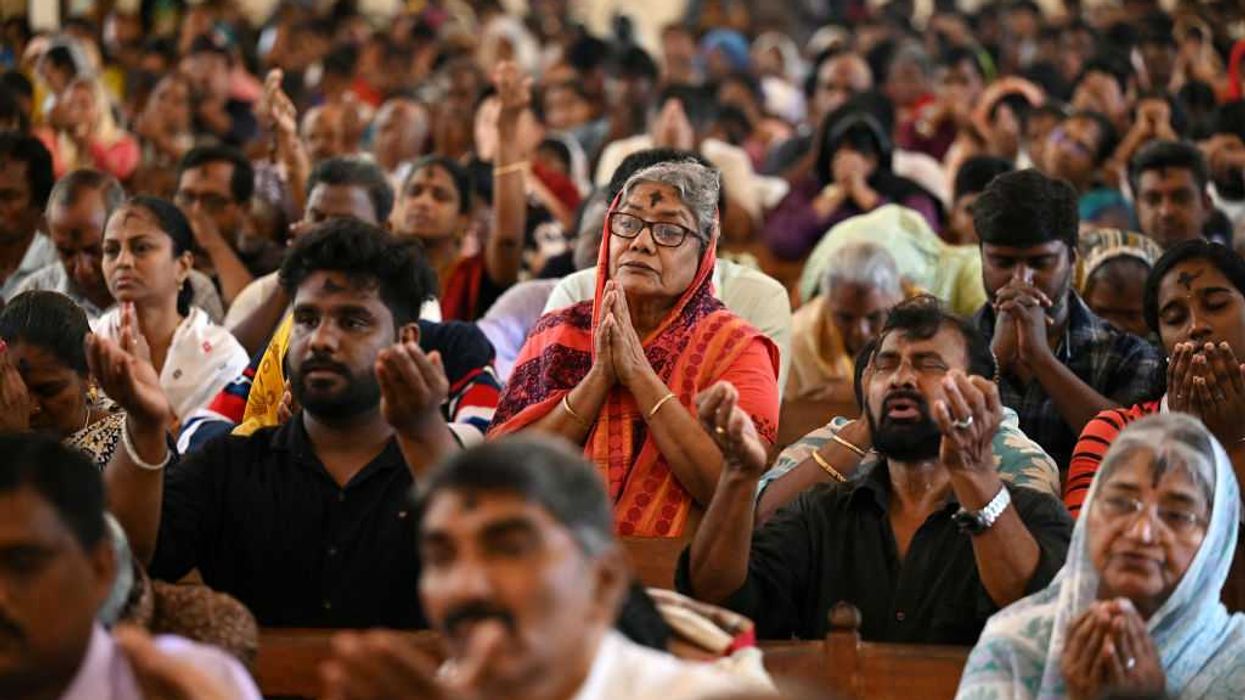
© 2025 Blaze Media LLC. All rights reserved.
Meet the 'Sixth Sense' iPhone App That's Exciting Social Media Gurus and Worrying Others
March 12, 2012
If someone standing near you also has Highlight, their profile will show up on your phone.
The South by Southwest (SXSW) conference has helped launch popular social media sites and applications, such as Twitter and FourSquare. The contender for the heart of this year's social networking conference, which is wrapping up in Austin, Texas, is an iPhone app called Highlight.

Highlight is a social media app that "lets you learn more about the people around you" -- literally. Highlight describes itself as giving you a "sixth sense" about those in your proximity who may also have the app. Here's essentially how it works:
If someone standing near you also has Highlight, their profile will show up on your phone. You can see their name, photos of them, mutual friends, and anything else they have chosen to share. When you meet someone, Highlight helps you see what you have in common with them. And when you forget their name at a party a week later, Highlight can help you remember it.
Highlight is in a class of apps that its founder Paul Davidson describes as "social discovery" apps -- a buzz word in many discussions at SXSW this year. These types of apps, most simply put, streamline how a person finds other people based on factors such as location or age.
Davidson said that up until recently, the way individuals found each other on social media was "horribly random and inefficient." Davidson goes further to describe how social discovery apps, such as Highlight, tie our social media world to our physical being. He compares reality to a "bizarre version of Facebook where every profile is just a single photo" -- our body -- with no other information attached to it.
Watch Davidson explain more about the app in this Forbes report:
As you might imagine, there are a host of privacy concerns that would come along with this app. MSNBC's tech blog explains that Electronic Frontier Foundation's Parker Higgins takes issue with some of Highlight's elements because it's continually streaming your information to fellow Highlight users without having a "check in" feature, which would allow you to control when it was turned on, although it dose have a pause function. Higgins also mentions some flaws in the privacy policy -- or lack thereof -- for data and how long information can be kept by the company:
It doesn't take much imagination to figure out how sending such a steady stream of location data to a third party with no posted privacy or data retention policy could go very wrong: the application could be indefinitely storing location histories on their servers for every user, including likely interactions between them. Further, Highlight has access not only to locally stored personal data but also can access the Facebook photos, profile details, and other data on that service.
John Biggs writes on Tech Crunch (via MSNBC) that he received an invite to Highlight from an acquaintance via a SMS, which also contained the names of 141 other people whose numbers he could see. Biggs states if Highlight is going to allow spam invites such as this, then it should at least provide encryption of phone numbers of those on the invite list.

Business Insider's Alyson Shontell joined the club but shortly afterward deleted the app when she found it was draining her battery and she felt like she was being watched. Still, she eventually came back to it. Here's why:
On my flight to SXSW, I had a change of heart. I looked around the terminal and realized most of the passengers were heading to the conference. Some were familiar faces but I had trouble placing names. So, I downloaded Highlight again.I pulled it open and tried to be stealth in my stalking. The director of a startup I've covered was close by. I glanced up sheepishly trying not to get caught. Then I spotted him.
A few feet away was a TechStars NY team I had met once before.
In the past three days, Highlight has found 116 other users in my vicinity, including Rick Webb and Dave Morin, two people I would like to meet.
One of the benefits of Highlight in addition to networking, Shontell points out is as the next generation of online dating. Instead of hoping the profile picture on an online dating sight really portrays how an interest looks, if you see someone in public who catches your eye, and they also have Highlight, you can get some background info before deciding to pursue them.
Other location-based social networking apps buzzing around the conference have included Glancee, Ban.jo, Sonar, Intro and Kismet. Each have their own location-based nuances.
Glancee founder Andrea Vaccari, for example, said finding the right balance of public and private information will be the key element that separates one app from the pack. Glancee doesn't display exact locations but uses approximate locators, like "10 miles away."
Ban.jo has been around longer than some startups and has, it says, a larger network of users than all the new apps combined. It pulls connections from Facebook, Twitter, Foursquare, Instagram and others, and relies on public check-ins, rather than exposing user location.
Damien Patton founded Ban.jo after a missed connection of a nearby friend at an airport.
"I decided at that moment that that was never going to happen to me again," says Patton. "That's why I started programming literally that day."
The Associated Press contributed to this report.
Want to leave a tip?
We answer to you. Help keep our content free of advertisers and big tech censorship by leaving a tip today.
Want to join the conversation?
Already a subscriber?
more stories
Sign up for the Blaze newsletter
By signing up, you agree to our Privacy Policy and Terms of Use, and agree to receive content that may sometimes include advertisements. You may opt out at any time.
Related Content
© 2025 Blaze Media LLC. All rights reserved.
Get the stories that matter most delivered directly to your inbox.
By signing up, you agree to our Privacy Policy and Terms of Use, and agree to receive content that may sometimes include advertisements. You may opt out at any time.





